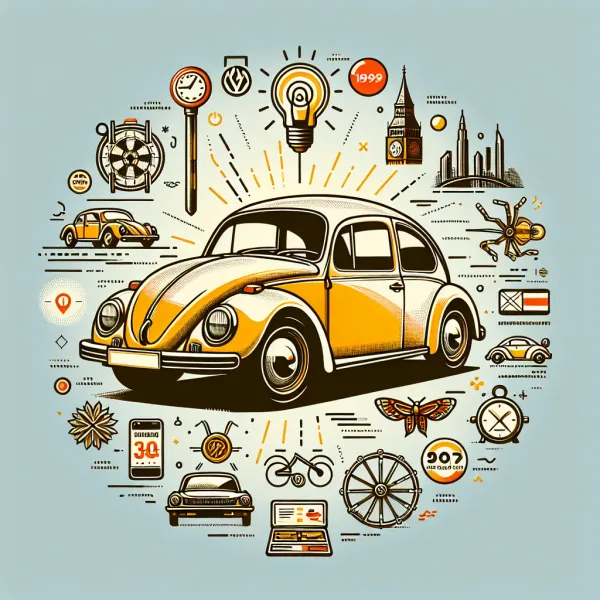The Timeless Charm of the Volkswagen Beetle: A Cultural Icon
The Timeless Charm of the Volkswagen Beetle: A Cultural Icon
The Volkswagen Beetle, affectionately known as the 'Bug,' is more than just a car. It is a symbol of innovation, resilience, and cultural significance. From its humble beginnings in pre-war Germany to becoming a global phenomenon, the Beetle has left an indelible mark on the automotive world and beyond.
A Brief History of the Volkswagen Beetle
The story of the Beetle began in the 1930s when Ferdinand Porsche was commissioned by Adolf Hitler to create a 'people's car' (Volkswagen in German). The goal was to design an affordable, reliable vehicle for the average German family. The first prototype, known as the KdF-Wagen, was introduced in 1938. However, World War II delayed mass production, and the car's future remained uncertain.
After the war, the British Army took control of the Volkswagen factory in Wolfsburg and revived the Beetle project. By the late 1940s, the Beetle was back on the production line, and its popularity began to soar. Over the next few decades, it became one of the best-selling cars in history, with over 21 million units produced worldwide.
Design That Stands the Test of Time
The Beetle's design is instantly recognizable. Its rounded, compact shape, rear-mounted engine, and air-cooled system were revolutionary at the time. The simplicity of its design made it easy to maintain and repair, which contributed to its widespread appeal.
Over the years, the Beetle underwent several updates and redesigns, but it always retained its signature silhouette. The New Beetle, introduced in 1998, brought a modern twist to the classic design, appealing to a new generation of drivers while evoking nostalgia among longtime fans.
A Cultural Phenomenon
The Volkswagen Beetle is more than just a car; it is a cultural icon. It has appeared in countless movies, TV shows, and songs, cementing its place in popular culture. Perhaps the most famous Beetle is Herbie, the lovable, self-driving car from Disney's The Love Bug series.
During the 1960s and 1970s, the Beetle became a symbol of the counterculture movement. Its affordability and quirky design resonated with young people seeking an alternative to mainstream consumerism. The Beetle's association with peace, love, and individuality made it a favorite among hippies and free spirits.
The End of an Era
In 2019, Volkswagen announced the end of Beetle production, marking the conclusion of an 80-year journey. The final Beetle rolled off the assembly line in Puebla, Mexico, on July 10, 2019. While this marked the end of an era, the Beetle's legacy lives on in the hearts of millions of fans around the world.
The Legacy of the Volkswagen Beetle
The Volkswagen Beetle is more than just a car; it is a testament to the power of design, innovation, and cultural relevance. Its impact on the automotive industry and popular culture is unparalleled, and its legacy continues to inspire new generations.
Whether you are a car enthusiast, a history buff, or simply someone who appreciates timeless design, the Volkswagen Beetle is a story worth celebrating. It is a reminder that even the smallest, simplest ideas can leave a lasting impression.
